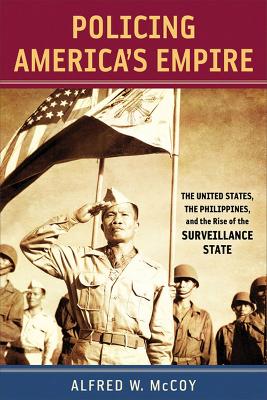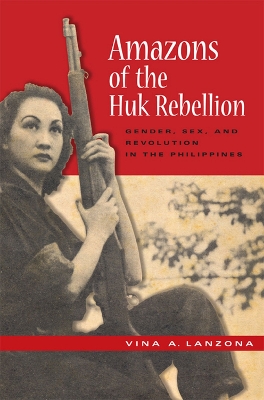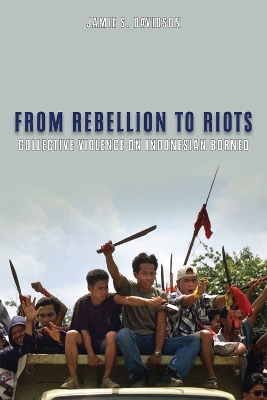New Perspectives in Southeast Asian Studies
4 total works
Winner of the Philippine National Book Award, but now out of print outside of Asia, "An Anarchy of Families: State and Family in the Philippines" explores the dynamics of family-based oligarchies and their pervasive influence on Philippine politics. Throughout the 20th century, kinship networks radiating from elite Filipino families have acted as powerful coalitions wielding substantial capital, exercising political sway, and sometimes backing it up with paramilitary force. This volume shows how the power of these extended families both derives from, and contributes to, a weak and corrupt state. Exploiting inherited wealth and invoking their family names, provincial and urban elites gain access to political privileges such as low-cost government credit, selective slackening of commercial regulations, licenses for state-regulated enterprises, and freedom from interference in labor disputes. Many of these families then pressure constituents to deliver, in exchange, votes for the officials who conferred the favors sought. The result is often increased factionalism, intensification of violence, and further attenuation of central government.
Edited by Alfred W. McCoy, the volume offers nine essays that demonstrate the variety of style and method exhibited by the Filipino political families discussed therein. Their lives, punctuated by the mundane experiences of baptism, marriage, disputes over inheritance, and other events of the domestic sphere, have profoundly affected the life of the nation. From provincial warlords to modern managers, these familial networks have fused politics and business to subvert public institutions and reinforce private accumulation of wealth a pattern that continues to the present day.
In the years following its publication in 1995, "An Anarchy of Families" won both praise and criticism. Neither managed to add or subtract significantly from the most essential attribute of the book: It had struck the sciatic nerve of Philippine politics. In effect, the volume had identified and analyzed a sensitive, far-reaching facet whose operation is as central to the functioning of the Philippine polity now as it was then. As reader Patricio Abinales and series editor Katherine Bowie confirm, "An Anarchy of Families" has continuing relevance and should be made available once again to students and scholars. Originally published by the Center for Southeast Asian Studies, this proposed reprint will help supply our series New Perspectives in Southeast Asian Studies with both critical mass and intellectual gravitas."
Edited by Alfred W. McCoy, the volume offers nine essays that demonstrate the variety of style and method exhibited by the Filipino political families discussed therein. Their lives, punctuated by the mundane experiences of baptism, marriage, disputes over inheritance, and other events of the domestic sphere, have profoundly affected the life of the nation. From provincial warlords to modern managers, these familial networks have fused politics and business to subvert public institutions and reinforce private accumulation of wealth a pattern that continues to the present day.
In the years following its publication in 1995, "An Anarchy of Families" won both praise and criticism. Neither managed to add or subtract significantly from the most essential attribute of the book: It had struck the sciatic nerve of Philippine politics. In effect, the volume had identified and analyzed a sensitive, far-reaching facet whose operation is as central to the functioning of the Philippine polity now as it was then. As reader Patricio Abinales and series editor Katherine Bowie confirm, "An Anarchy of Families" has continuing relevance and should be made available once again to students and scholars. Originally published by the Center for Southeast Asian Studies, this proposed reprint will help supply our series New Perspectives in Southeast Asian Studies with both critical mass and intellectual gravitas."
At the dawn of the twentieth century, the U.S. Army swiftly occupied Manila and then plunged into a decade-long pacification campaign with striking parallels to today's war in Iraq. Armed with cutting-edge technology from America's first information revolution, the U.S. colonial regime created the most modern police and intelligence units anywhere under the American flag. In ""Policing America's Empire"" Alfred W. McCoy shows how this imperial panopticon slowly crushed the Filipino revolutionary movement with a lethal mix of firepower, surveillance, and incriminating information. Even after Washington freed its colony and won global power in 1945, it would intervene in the Philippines periodically for the next half-century - using the country as a laboratory for counterinsurgency and rearming local security forces for repression. In trying to create a democracy in the Philippines, the United States unleashed profoundly undemocratic forces that persist to the present day. But security techniques bred in the tropical hothouse of colonial rule were not contained, McCoy shows, at this remote periphery of American power. Migrating homeward through both personnel and policies, these innovations helped shape a new federal security apparatus during World War I. Once established under the pressures of wartime mobilization, this distinctively American system of public-private surveillance persisted in various forms for the next fifty years, as an omnipresent, sub rosa matrix that honeycombed U.S. society with active informers, secretive civilian organizations, and government counterintelligence agencies. In each succeeding global crisis, this covert nexus expanded its domestic operations, producing new contraventions of civil liberties - from the harassment of labor activists and ethnic communities during World War I, to the mass incarceration of Japanese Americans during World War II, all the way to the secret blacklisting of suspected communists during the Cold War.
Labeled "Amazons" by the national press, women played a central role in the Huk rebellion, one of the most significant peasant-based revolutions in modern Philippine history. As spies, organizers, nurses, couriers, soldiers, and even military commanders, women worked closely with men to resist first Japanese occupation and later, after WWII, to challenge the new Philippine republic. But in the midst of the uncertainty and violence of rebellion, these women also pursued personal lives, falling in love, becoming pregnant, and raising families, often with their male comrades-in-arms.
Drawing on interviews with over one hundred veterans of the movement, Vina A. Lanzona explores the Huk rebellion from the intimate and collective experiences of its female participants, demonstrating how their presence, and the complex questions of gender, family, and sexuality they provoked, ultimately shaped the nature of the revolutionary struggle. Winner, Kenneth W. Baldridge Prize for the best history book written by a resident of Hawaii, sponsored by Brigham Young University-Hawaii
Drawing on interviews with over one hundred veterans of the movement, Vina A. Lanzona explores the Huk rebellion from the intimate and collective experiences of its female participants, demonstrating how their presence, and the complex questions of gender, family, and sexuality they provoked, ultimately shaped the nature of the revolutionary struggle. Winner, Kenneth W. Baldridge Prize for the best history book written by a resident of Hawaii, sponsored by Brigham Young University-Hawaii
From Rebellion to Riots is a critical analysis of the roots of contemporary violence in one of Indonesia's most ethnically heterogeneous provinces, West Kalimantan. Since the late 1960s, this province has suffered periodic outbreaks of ethnic violence among its Dayak, Malay, Madurese, and ethnic Chinese populations. Citing evidence from his research, internal military documents, and ethnographic accounts, Jamie S. Davidson refutes popular explanations for these flare-ups. The recurrent violence has less to do with a clash of cultures, the ills of New Order - led development, or indigenous marginalization than with the ongoing politicization of ethnic and indigenous identity in the region.Looking at key historical moments, markedly different in their particulars, Davidson reveals the important links between ethnic violence and subnational politics. In one case, army officers in Soeharto's recently established New Order regime encouraged anti-Chinese sentiments. To move against communist-inspired rebellion, they recruited indigenous Dayaks to expunge tens of thousands of ethnic Chinese from interior towns and villages.This counter-insurgent bloodshed inadvertently initiated a series of clashes between Dayaks and Madurese, another migrant community. Driven by an indigenous empowerment movement and efforts by local elites to control benefits provided by decentralization and democratization, these low-intensity riots rose to immense proportions in the late 1990s. ""From Rebellion to Riots"" demonstrates that the endemic violence in this vast region is not the inevitable outcome of its ethnic diversity, and reveals that the initial impetus for collective bloodshed is not necessarily the same as the forces that sustain it.



